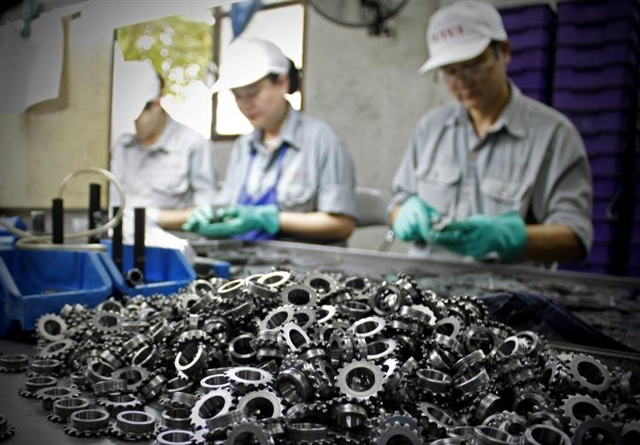50,000 vehicles per year is the minimum production level needed for the growth of the Vietnamese auto part industry. Unfortunately, few car producers in Việt Nam have reached such a level.

50,000 vehicles per year is the minimum production level needed for the growth of the Vietnamese auto part industry. Unfortunately, few car producers in Viet Nam have reached such a level.
Only Toyota and Hyundai crossed the threshold in 2021, with 64,172 and 56,028 vehicles, respectively.
Meanwhile, Kia fell short of the threshold with just 35,181 vehicles. VinFast followed with 34,746 and Mitsubishi with 26,346.
Truong Thi Chi Binh, an expert at Vietnam Institute of Strategy and Policy for Industry and Trade, underlined the low level of car production as a setback for the Vietnamese auto part industry.
She said low production meant low demand for domestic auto parts, discouraging suppliers from investing in new production lines.
Without new production lines, the suppliers become less competitive in price as they cannot achieve economies of scale.
Consequently, car producers have to find their auto parts elsewhere.
“Since auto production is insufficient to encourage domestic auto parts production, many car producers have no choice but to import their inputs,” Binh said.
The expert believes that Viet Nam should introduce favourable policies to boost the growth of the domestic industry.
Otherwise, Vietnamese suppliers will be priced out of the market by foreign competitors.
The general director of a Japanese auto producer shared the view. He pointed out that car parts prices in Viet Nam are two to three times higher than those in other regional countries.
Auto producers in Thailand purchase just 10 per cent of car parts from abroad. They get the rest from around 3,000 Thai suppliers.
Meanwhile, auto producers in Viet Nam have to import 80-85 per cent of car parts, effectively reducing the number of Vietnamese suppliers to around 300.
The general director called for more favourable policies to encourage domestic production of auto parts, particularly medium-sized steel and plastic parts.
Two experts at the Faculty of Economics, Vinh University, revealed that on average, an auto producer buys car parts from two domestic suppliers.
With over 90 per cent of suppliers in Viet Nam being FDI firms, Vietnamese firms take up a minority.
According to the Vietnam Register, 318,704 cars were sold and registered in Viet Nam in 2021, higher than the figures in 2020 (296,634) but lower than in 2019 (322,322). — VNS




